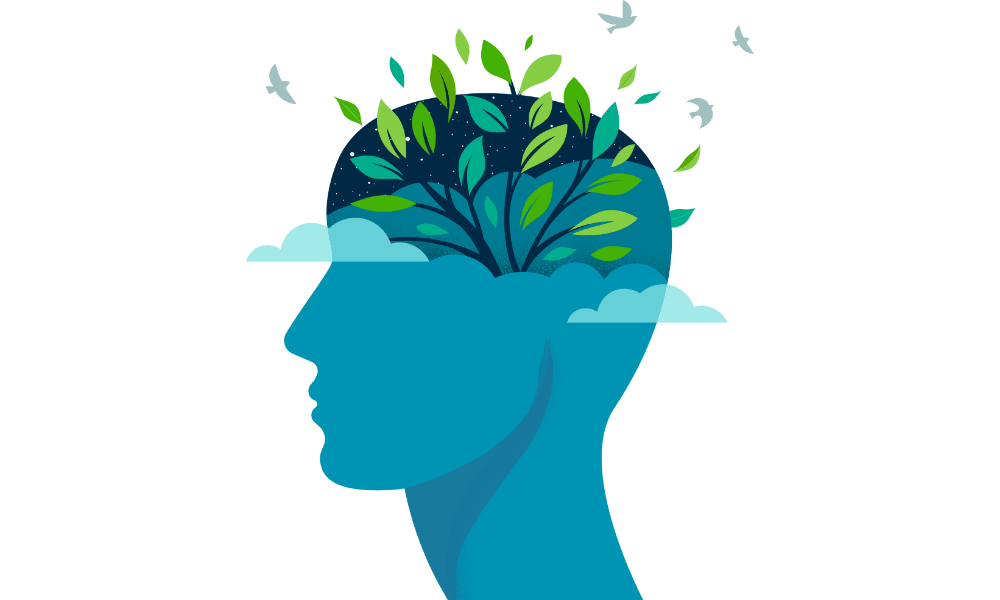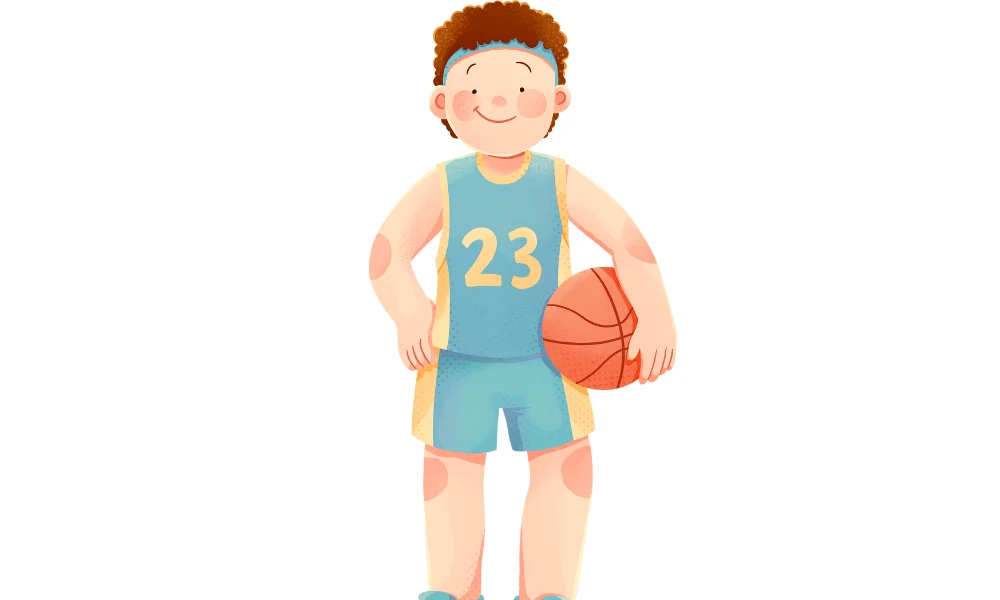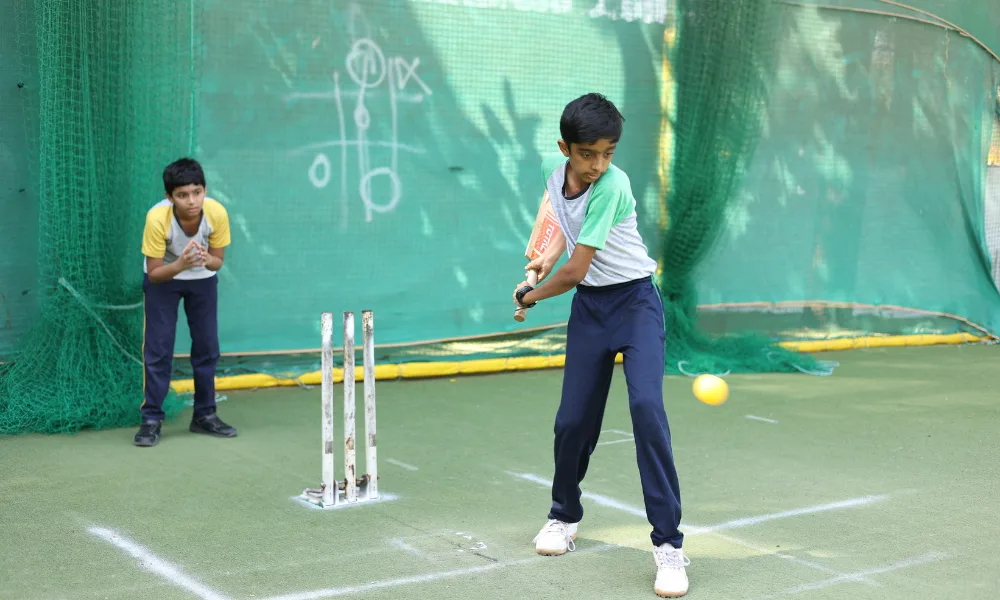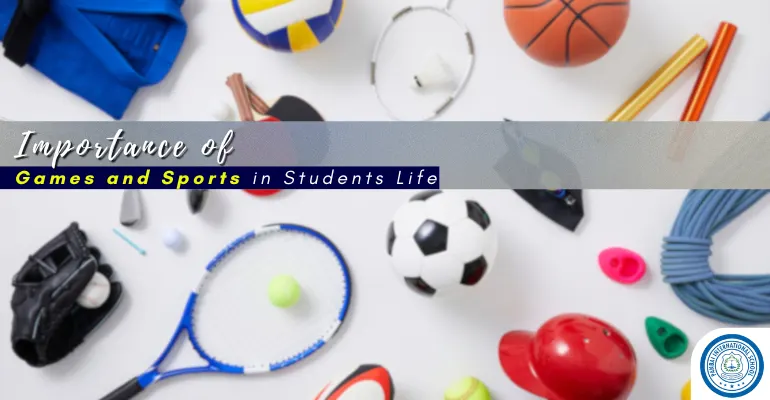Importance of Games and Sports in Students Life
June 6, 2025 2025-06-06 16:21Importance of Games and Sports in Students Life
The importance of games and sports in students life goes far beyond just physical activity. In today’s academic-driven environment, students are often caught in a loop of classes, tests, and homework. This routine can sometimes suppress a child’s holistic development. Games and sports offer a refreshing escape from this monotony and help shape well-rounded individuals.
Sports build character. Whether it’s a team sport like football or an individual game like badminton, children learn discipline, commitment, and leadership—traits that textbooks alone can’t teach. Students involved in regular sports activities often develop a better sense of time management, goal setting, and emotional resilience.
Schools, particularly schools in Mumbai, are beginning to integrate structured sports programs into their daily schedules to encourage more active lifestyles and support mental wellness alongside academics. These institutions understand that a student who plays is a student who thrives.
Physical Benefits of Games and Sports:


Games and sports are powerful tools for enhancing physical well-being. Regular physical activity improves metabolism, strengthens muscles, builds immunity, and improves cardiovascular health. Children who participate in sports from a young age tend to maintain healthy body weights and stay active into adulthood.
Boosting Immunity and Growth
Engaging in sports helps students develop stronger immune systems. It promotes better sleep cycles, healthier eating habits, and improved posture and reflexes.
Preventing Lifestyle Diseases
The rise of screen addiction and sedentary behavior among students has led to an increase in childhood obesity and lifestyle disorders. Games and sports counter these effects naturally by promoting movement and stamina.
Mental Health and Emotional Balance:


One of the lesser-talked-about yet critical aspects of the importance of games and sports in students life is mental well-being. Sports act as natural stress relievers and provide emotional release.
Reducing Academic Stress
Children involved in sports tend to handle academic pressure more efficiently. Physical activity stimulates the release of endorphins—chemicals in the brain that reduce stress and promote happiness.
Building Emotional Resilience
Winning or losing in games teaches students how to handle success and failure gracefully. This emotional intelligence becomes a crucial life skill as students grow into adulthood.
Social and Cognitive Development:
Games and sports offer real-time lessons in teamwork, communication, and decision-making. These experiences help shape students’ personalities and improve their social adaptability.
Teamwork and Collaboration
Team sports like basketball, volleyball, and cricket demand cooperation. Students learn how to trust others, take responsibility, and respect rules—skills that are essential in professional environments later.
Cognitive Growth
Strategic games like chess and even fast-paced sports such as tennis help sharpen memory, focus, and decision-making capabilities. This translates to improved academic performance and faster problem-solving in everyday life.
Sports as a Career Path:


The importance of games and sports in students life also extends into future career opportunities. With professional leagues, scholarships, and sports-centric careers on the rise, students now have more avenues to turn their passion for sports into a profession.
- Sports Management
- Coaching and Training
- Physiotherapy and Sports Medicine
- Journalism and Media in Sports
Such paths not only bring fame and financial rewards but also contribute to national pride.
Role of Schools in Promoting Sports:


Modern schools have a huge role in making sports an integral part of a student’s lifestyle. Offering diverse sports programs, regular practice sessions, inter-school competitions, and certified coaches can transform how children view physical activity.
Some of the best schools, especially in metropolitan cities like schools in Mumbai, have begun investing in advanced infrastructure such as swimming pools, basketball courts, and yoga studios. These amenities not only enhance performance but also generate interest among students.
Integrating Games and Sports with Academics:


Balancing academics and sports is the key to a student’s success. Schools need to create flexible schedules that allow students to focus on both areas without compromise.
Suggestions for Integration
- Introducing ‘Sports Hour’ every day
- Encouraging participation in inter-school competitions
- Using sports as part of experiential learning modules
- Rewarding sports achievements in annual reports
This balanced approach ensures that students grow mentally, emotionally, and physically.
Parental and Institutional Support:


A student’s interest in games and sports can only flourish with strong support from parents and institutions. Parents should encourage their children to participate in sports early on as a hobby and a developmental tool.
Educational institutions must recognize that sports are not an extracurricular luxury but a core part of student development. Whether it’s through providing quality coaches or safe spaces to play, schools must lead the way.
Shaping the Future Through Sports:
In essence, the importance of games and sports in students life lies in how these activities shape the next generation—not just physically but also morally, emotionally, and intellectually. It’s not just about playing games; it’s about preparing students for life.
Frequently Asked Questions (FAQs)
Ques 1. How do sports affect a student’s academic performance?
Ans. Sports improve concentration, memory, and time management, leading to better academic performance.
Ques 2. Do games and sports help improve discipline?
Ans. Yes. Sports teach students discipline through routines, rules, and commitment.
Ques 3. Are team sports better than individual sports for students?
Ans. Both are important. Team sports teach collaboration, while individual sports build focus and self-reliance.
Ques 4. How early should a student start playing sports?
Ans. As early as possible. Habits formed young often become lifelong practices.
Ques 5. Can sports help with time management?
Ans. Yes. Students who play sports often manage their academic and extracurricular tasks more efficiently.




